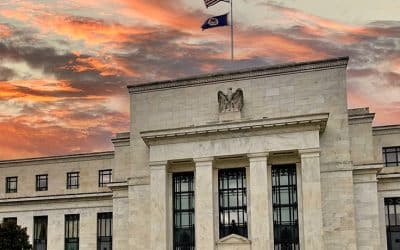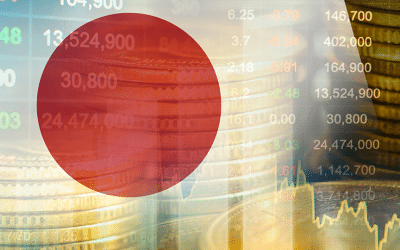Inflation or growth? The never-ending dichotomy has an answer

Redacción Mapfre
"We are far from rates where we see inflation returning to the 2% target." These words by Christine Lagarde, following the announcement of the European Central Bank's rate hike, implied not only that further rate hikes will be forthcoming, but also that the price level remains the Bank's top priority.
The same sentence thus cleared up doubts on the question between “inflation or growth”. This dichotomy, which has been present since the beginning of the conflict in Ukraine, is also following in its wake in the United States, with CPI at 8.1% and a somewhat worrying core inflation (in the latest update for the month of August, it rose four tenths of a point to 6.3%).
As Alberto Matellán, chief economist at MAPFRE Inversión, has explained on other occasions, the growth factors on both sides of the Atlantic are quite different: while the US powerhouse finds the source of its inflationary spiral in its own country (demand shock), Europe (with signs of internal pressure, however softer than in the US) looks to the price of gas and, basically, to the external supply of raw materials and energy. In fact, the central banker sarcastically acknowledged that "I cannot reduce the price of energy, I cannot convince a major world player (alluding to Russia) to reduce the price of gas, I cannot reform the electricity market." However, the economist informs that "it is more likely that inflation will reverse earlier in the Old Continent than in the United States."
Growth, with this, remains on a second level. However, it is still a concern. Have recessionary risks increased? France, for example, has announced that the economic slowdown next year will be more pronounced than it had anticipated after reducing its GDP forecast by four tenths of a percentage point to 1%; Germany, however, faces a darker few months: experts point to a slowdown in growth, which would reach 0.3%; and in Spain, meanwhile, 86.7% of companies see a significant risk of recession and the Bloomberg consensus anticipates growth of 1.8% in 2023 (a figure which, according to Matellán, is not entirely optimistic at this time but "it is still compatible with job creation).
In the euro zone, moreover, growth of 0.8% is expected, which confirms the trend in the member countries: growth expectations are being revised downward. With doubts as to whether an eventual recession will finally arrive this year, he says that it will gradually be priced in "both in stocks and bonds." However, the expert remarks that "low growth will not change the outlook of central banks." He adds that to do so, "they will need to see a significant drop in inflation."
Although with notorious differences between regions, Europe faces the challenging task of fighting inflation (and bringing it to around 2%) and at the same time, avoiding collateral damage (arising from monetary decision-making) on growth and thus on the economy.



